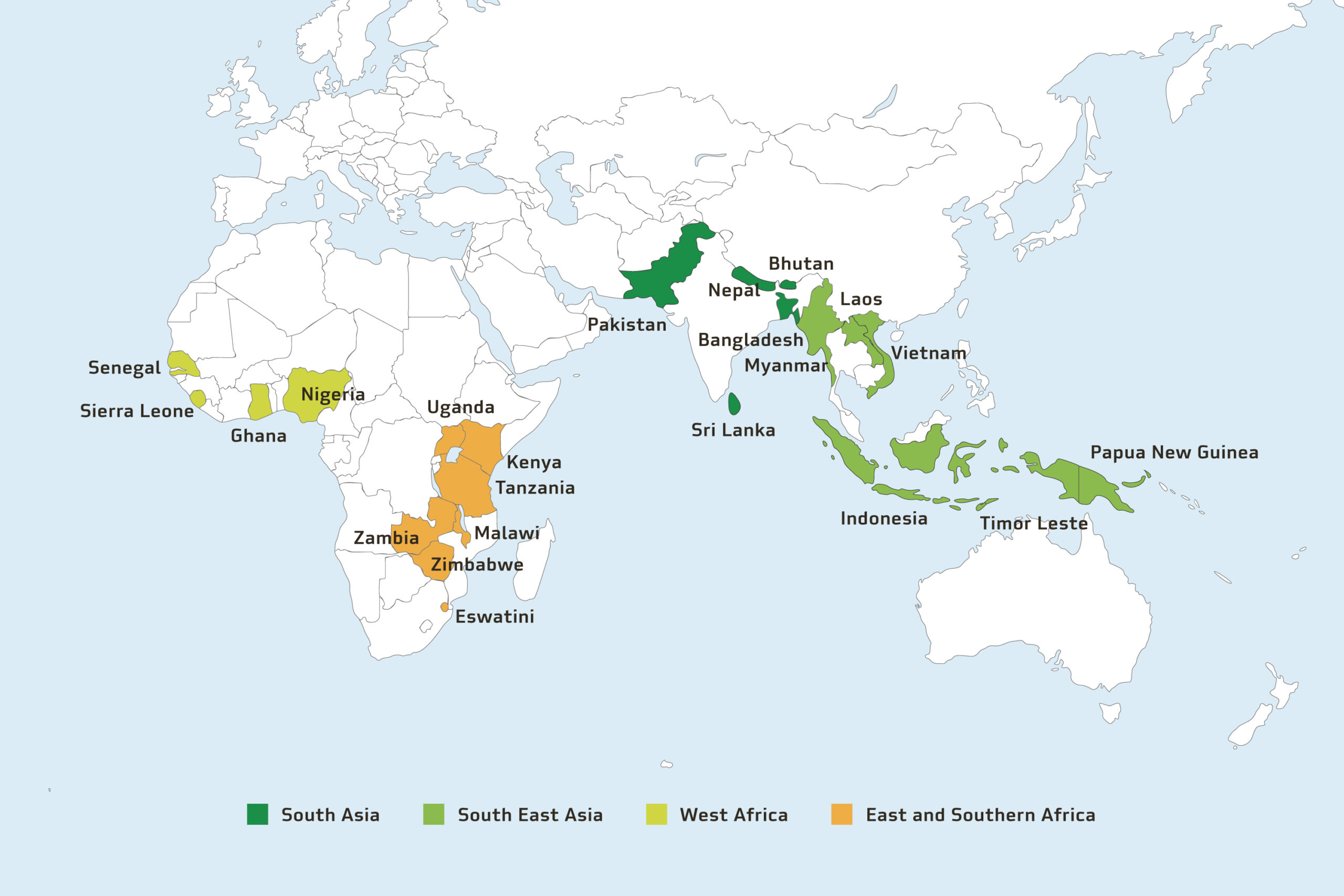
THE RADAAR PROJECT
From Data to Evidence to Action to Contain AMR: The ‘Slow Pandemic’
The RADAAR project started in March 2020 aiming to improve data-sharing and use for AMR policy, planning and advocacy. It is a regional project in Asia and Africa, focused on ‘One Health’: human and animal health, and where possible, environmental health. Policy-makers need robust evidence and data to enable effective decisions. Many countries limit data-sharing, so RADAAR will improve data-sharing at the regional level and ensure that policy-makers are aware of the evidence and recommendations that exist regarding AMR. RADAAR looks at how AMR data is being used, the barriers and enablers to data-sharing at a regional level by Fleming Fund countries, and how that data can be shared, analysed, and used to develop and implement policies to fight AMR.
IVI, the lead grantee for RADAAR, is based in Seoul, Republic of Korea, with a primary focus on vaccine research and development. It is a non-profit inter-governmental organization which was established in 1997 at the initiative of UNDP. It has 35 signatory countries and the World Health Organization (WHO) on its treaty, including Korea, Sweden and India as state funders. For more information: https://www.ivi.int
The value of data: https://www.flemingfund.org/our-approach/the-value-of-data/
- Discover more about the RADAAR team: Meet the team
GEOGRAPHICAL SCOPE OF OUR WORK

ABOUT AMR
Antimicrobial resistance (AMR) is caused by the overuse of medicines. Antimicrobials – such as antibiotics, antivirals, antifungals – are medicines that are used to prevent and treat infections in humans, animals and plants. The pathogens – bacteria, viruses, parasites – that cause infections can change over time and become resistant to medicines. These resistant pathogens spread from the individual to other members of the community. Consequently, infections and illnesses can become untreatable, disease risk increases, and medical procedures such as surgery can become too risky. AMR is also referred to as ‘drug-resistant infection.’ The micro-organisms that develop AMR are often called ‘superbugs.’ AMR is happening now and is becoming increasingly severe – infections cause over 700,000 deaths per year and rising. There are also serious economic costs. However, AMR is solvable with immediate action.
Antimicrobial resistance (AMR) is one of the world’s greatest threats. It’s caused by the overuse of medicines, such as antibiotics. But it is not just a health issue…
Antimicrobial resistance (AMR) is one of the world’s greatest threats. It’s caused by the overuse of medicines, such as antibiotics. But it is not just a health issue…

